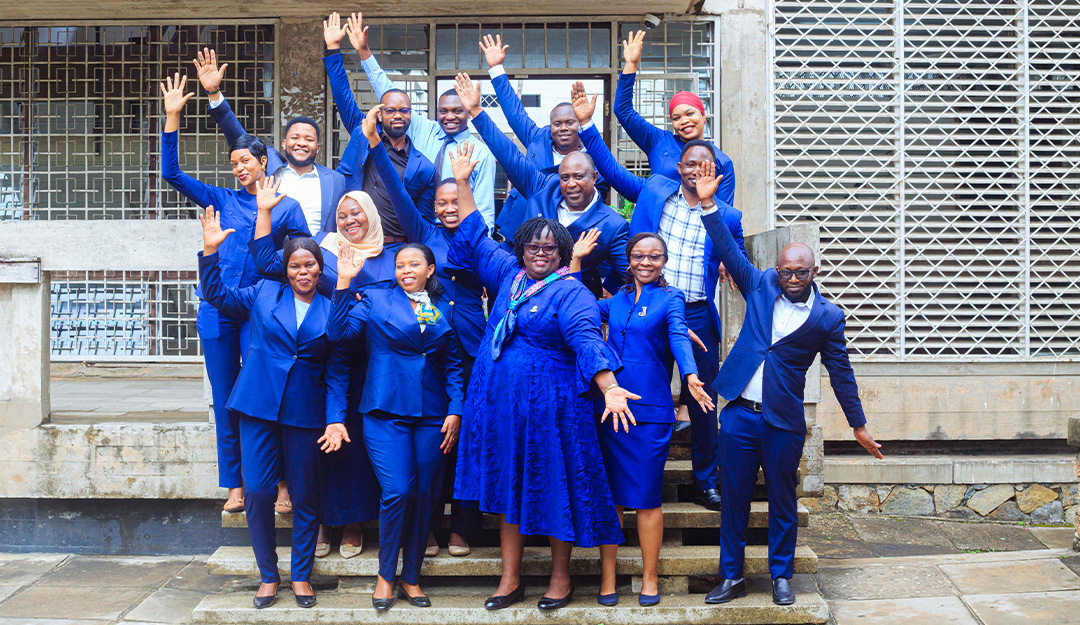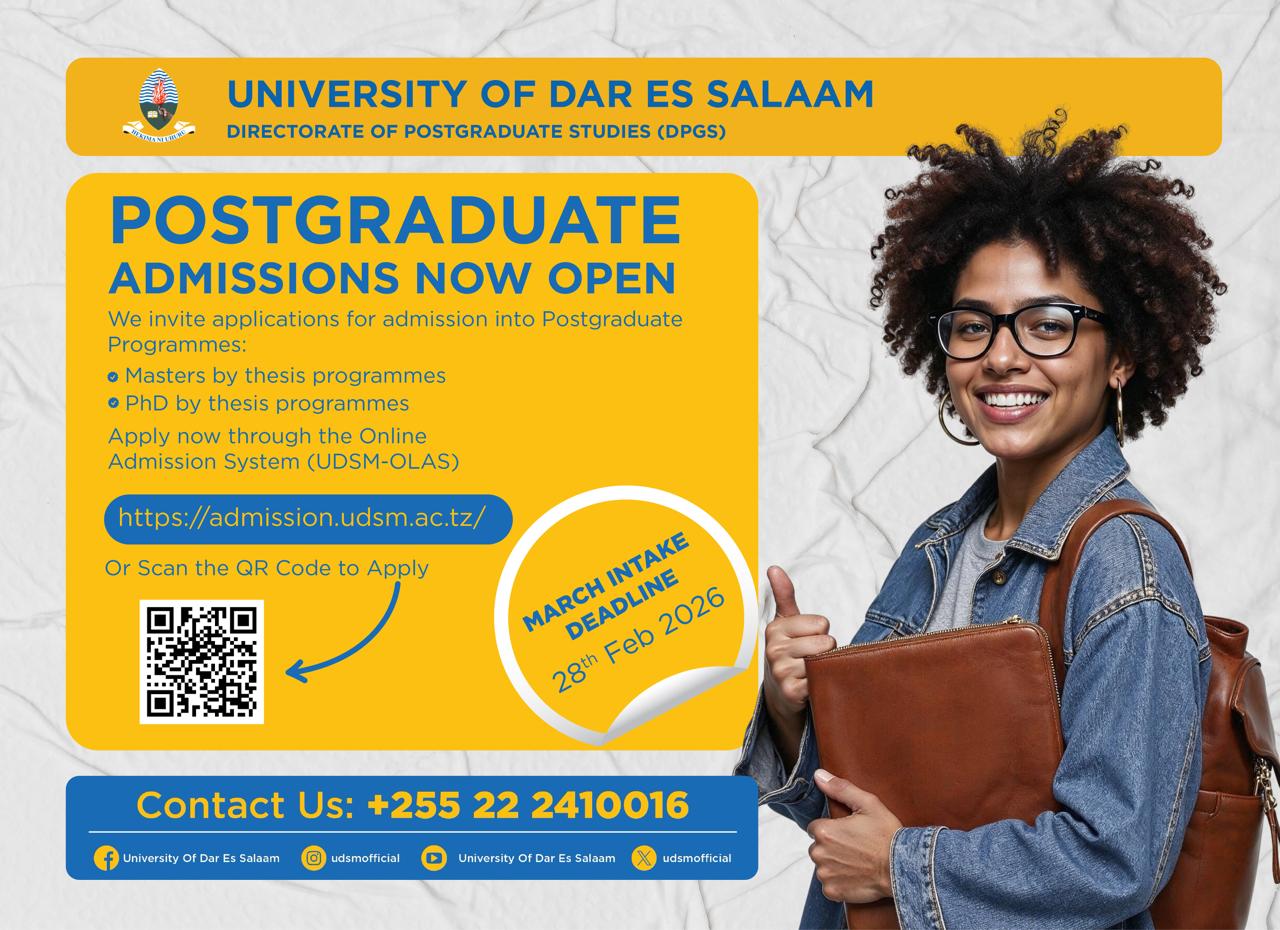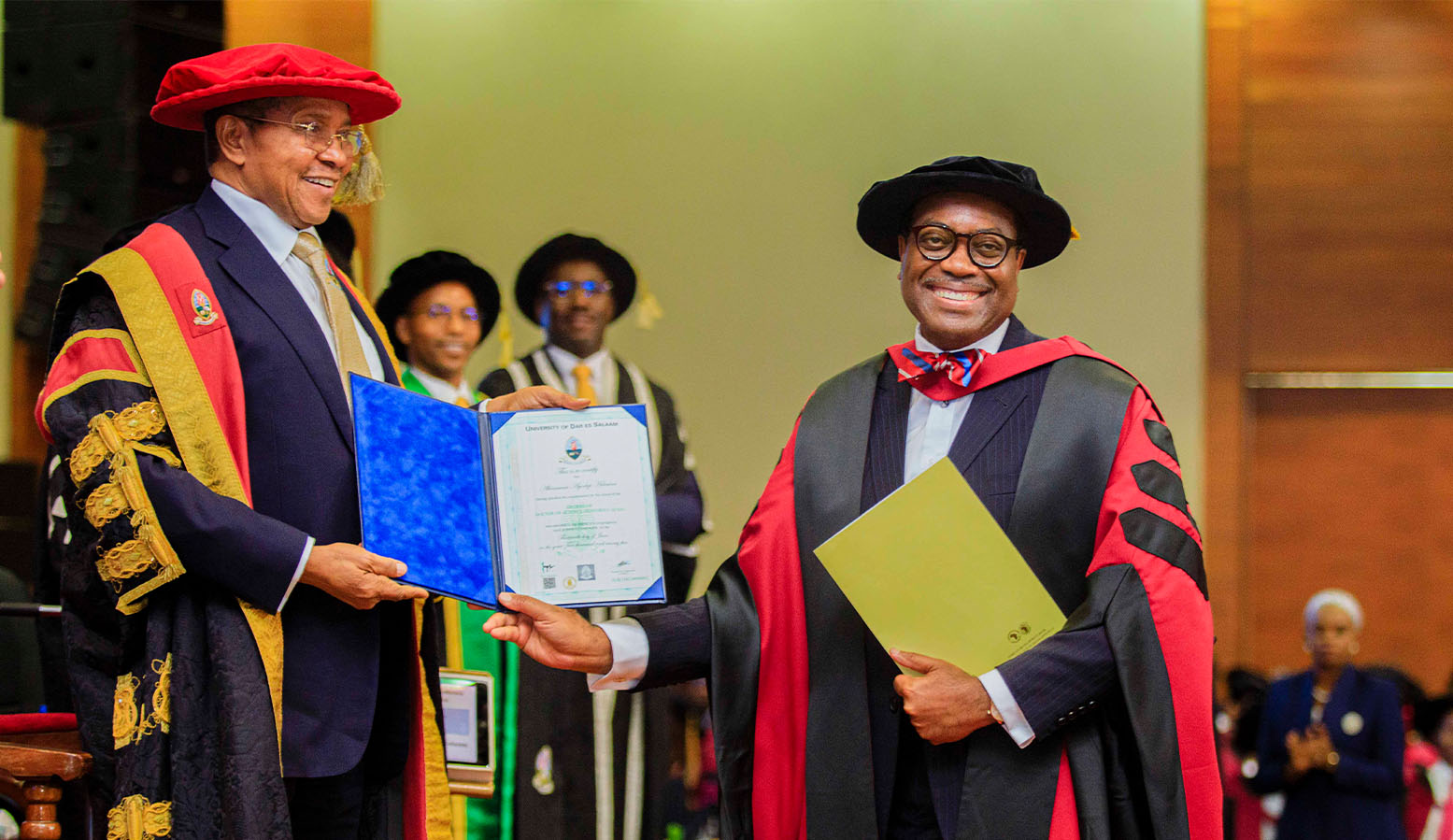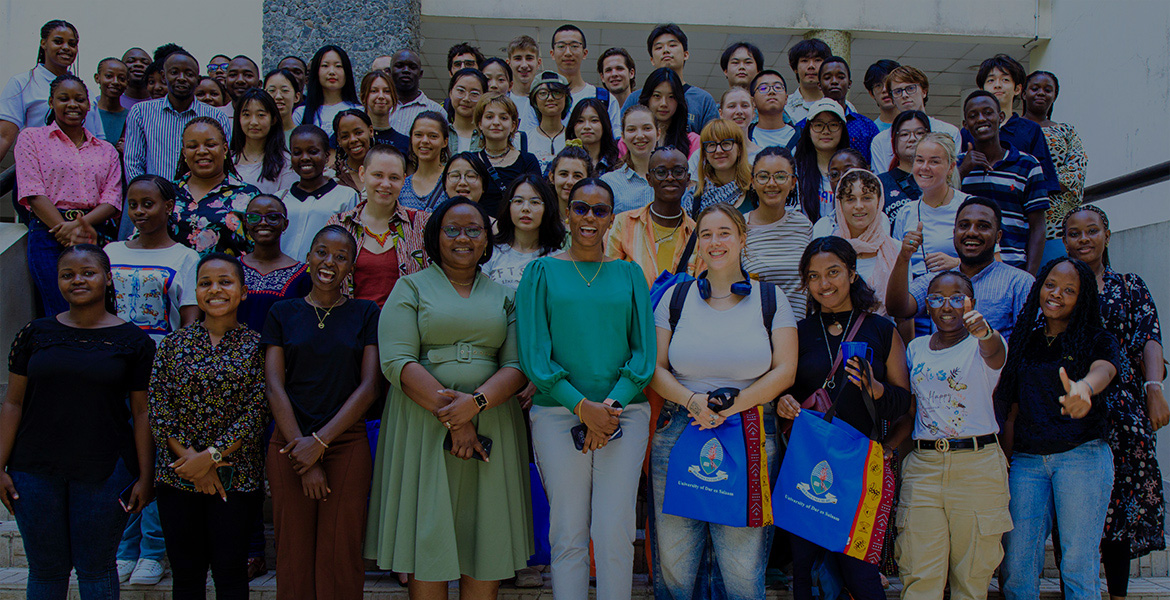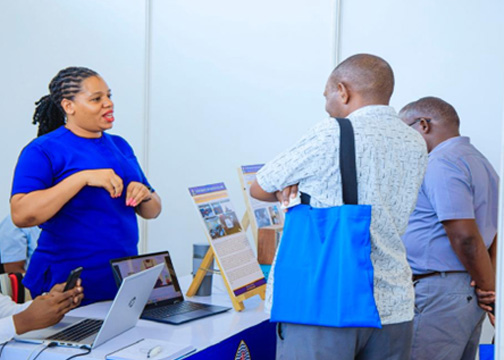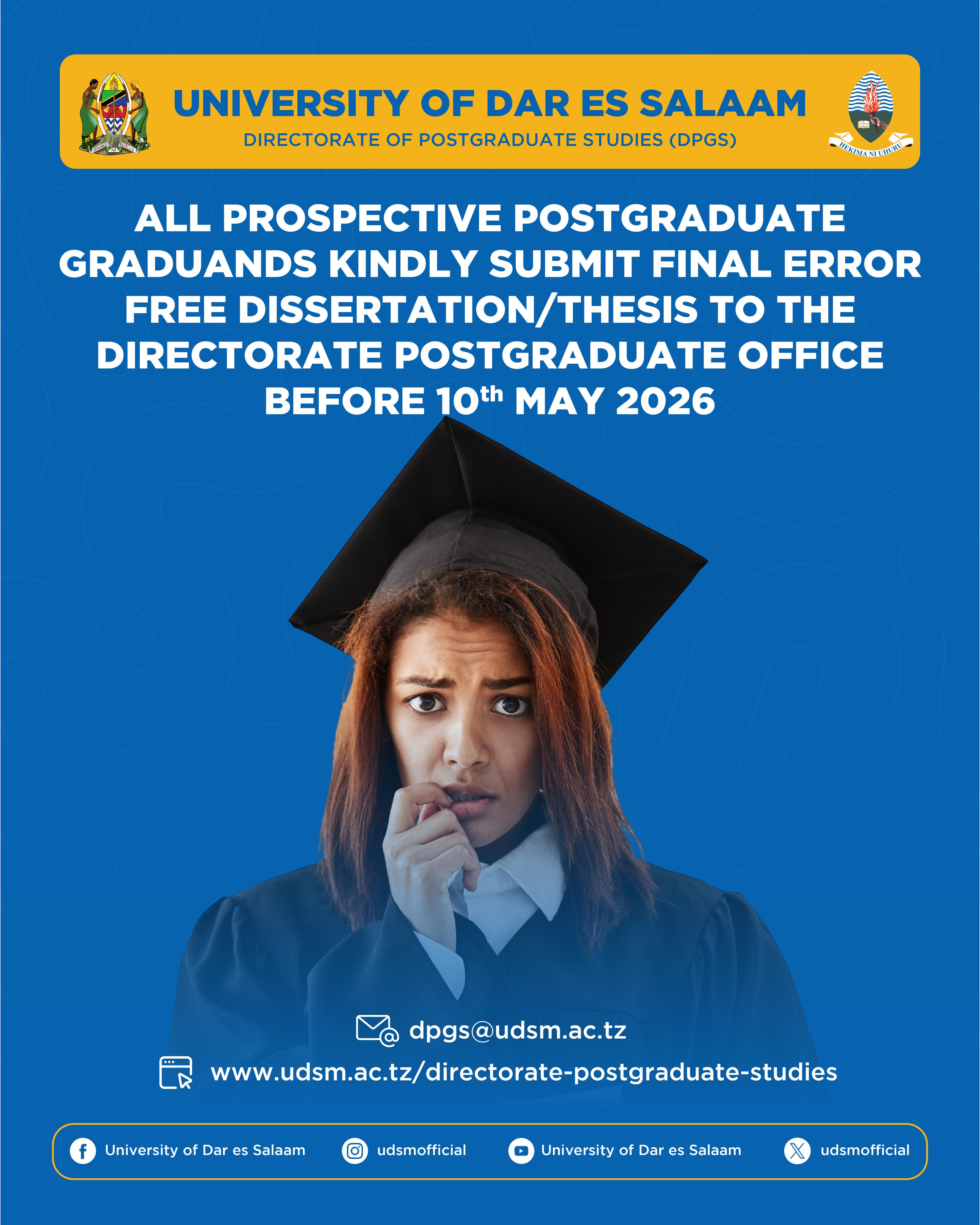Freezing of studies
- Freezing of studies shall mean stopping studies for a specified period of time where the period will not count into the student’s registration period.
- If, for any sound reason, a candidate fails to continue with his/her studies, he/she may apply to the SPSC for freezing of registration through his/her Department and College/School/Institute using form UDSM/PG.F14 .
- The maximum period for such freezing shall be two years.
- Freezing of registration is not allowed for students during the coursework phase.
- Permission to resume studies must be sought from the DVC Academic using form UDSM/PG.F15 .
Postponement of Studies
- (a) Postponement of studies shall mean stopping studies for a semester of a full academic year where the period will count into the student’s registration period.
- (b) Postponement of studies shall not be entertained. However under special circumstances, permission to postpone studies may be considered as per General Regulations and Guidelines for Postgraduate Programmes section 1.5.3 for students at the coursework phase. Students on thesis and dissertation phase shall be required to freeze registration as per regulations 1.5.15.
Permission for Travel
- (a) A candidate shall not be away from the University without a permission duly granted by the relevant authorities.
- (b) For travel within country permission must be sought from school/college/institutes and approval copied to the DPGS for noting
- (c) For travel outside the country permission must be sought from DVC –academic through Department, School/College/Institutes and DPGS.
- (d) Student permitted to travel should notify the permitting authority on her/his return using form number UDSM/PG.F17
Appealing Process
APPEALS AGAINST COURSEWORK/ DISSERTATION/ THESIS/ GRADUATE PROJECT /RESEARCH PAPER/ ESSAY
- 1. The right to appeal shall be open for every candidate aggrieved by coursework/dissertation/thesis/graduate project/research paper/essay results.
- 2. Appeals must be lodged within six months from the date of approval of the results.
- 3. Any appeal shall be lodged with the Board of the Appellant’s College/ School/Institute, which shall forward the appeal with recommendations to the SPSC, whose observations and recommendations will be forwarded to Senate for approval.
- 4. Except where unfair marking, wrong computation of marks or grades or other like irregularity committed in the conduct of the examination is alleged, no appeal shall lie in respect of any such examination on any ground.
- 5. No appeal will be considered where i. The candidate appeals for re-marking of examination script but fails to establish reasonable grounds for prejudice, incompetence, or lack of integrity on the part of the internal examiner. ii. It rises for the first time issues concerning the supervision, teaching or coursework assessment. Such matters will only be considered if they had been raised by the student promptly and in writing, at the time when they first arose. iii. A student alleges illness or other factors but where she/he had an opportunity to postpone studies or examination(s) but voluntarily opted not to take that opportunity.
- 6. Any member of the appellant’s College, School or Academic Institute Board who participated in the making of the decision against which appeal is lodged shall not have a voting right in the Senate over such an appeal and may participate herein only in terms of presentation of findings and recommendations of the appellant’s College, School or Academic Institute Board by answering queries, as the case may be, and shall otherwise be absent from the Senate session considering any such appeal.
- 7. Any student or candidate aggrieved by a decision of Senate on terms of the provisions of regulation regarding examination irregularities may apply for review of the decision by the Senate.
- 8. Application made under regulation 6.5 shall be lodged directly with the Deputy Vice Chancellor in charge of academics who shall forward them to the Senate with observations and recommendations herein.
- 9. Any person who has been involved at any stage in the processing of a case of alleged commission of examination irregularity, whether at first instance or in the preparation for the appeal, shall be barred from participating in the decision making decision over such a case, except for the purpose of making a presentation of findings or recommendations or answering queries, as the case may be, in respect thereof and shall otherwise be absent from the Senate session considering such appeal.
- 10. The candidate’s appeal shall be entertained upon payment of an appeal fee amounting TZS. 20,000/=
- 11. A student may appeal to the Chairman Senate against the decision of the Senate on his/her appeal by lodging the appeal through the DVC in charge of academics. Such an appeal shall only be entertained if it had at first been rejected by Senate and if the student presents new developments and/or grounds that were not and could not be made available to Senate.
- 12. The Chairman of Senate’s decision on an appeal shall be final and conclusive and no further appeal shall be entertained regarding the same issue.
- 13. The decision of the Chairman of Senate shall be reported to Senate for Noting
Registration Process
- 1. Candidates will be registered either for coursework study followed by research leading to a dissertation or by research leading to a thesis without a prescribed coursework component.
- 2. Candidates may register as full-time or part-time students. Registration will take place during the first three weeks of Semester I and Semester II for the respective intakes.
- 3. Candidates selected for admission shall be required to register at the commencement of the first academic year of their studies.
- 4. Registration shall take place in the first three weeks of the respective academic year and shall be effected upon submission by the candidate of a dully filled registration form and upon submission of the following: a. Evidence of payment of the University fees; b. Masters Academic transcripts (applicable for PhD. students) c. Masters Degree Certificate (applicable for PhD. students) d. Postgraduate Diploma Transcript and University Certificate (for students whose GPA for Bachelor Degree is below minimum entry qualification i.e. below 2.7) e. Bachelor Degree Academic Transcript (GPA must be above 2.7) f. Bachelor Degree University Certificate g. Advanced Certificate of Secondary Education (ACSE) h. Certificate of Secondary Education Examination (CSEE) i. Proof of Health insurance scheme j. Two stamp-size (or passport-size) color photographs; and
- 5. Candidates shall renew their registration at the beginning of every subsequent year by submitting a duly filled form (UDSM/PG.F2) and upon paying the fees due to the University.
- 6. Failure to renew registration shall lead to automatic discontinuation from studies.
- 7. Registration of new and continuing students shall take place within three weeks from the first day of the commencement of the academic year. Students seeking registration during the fourth week shall be liable to a surcharge paid per day as the Council may from time to time prescribe. No student shall be registered after the fourth week since the commencement of the semester.
- 8. Candidates shall only be registered by names appearing on their certificates or a gazetted Deed Poll showing a legal change of names before registration. No change of names by students shall be entertained during the course of study at the University.
- 9. Candidate’s desirous of changing subjects/courses/programme shall be allowed to do so after registration and within three weeks after commencement of the academic year. No candidate shall be allowed to change subjects/courses/programmes after the fourth week of commencement of the semester.
- 10. With valid reasons candidates within their studentships may apply for permission to change their study programme delivery modes and campus transfer within the University of Dar es Salaam from DVC academic using UDSM/PG.F4.
- 11. Transferring from one academic programme to another will be allowed only if the candidate possesses the required admission criteria for the programme for which transfer is being sought and a vacancy exists in that programme.
- 12. Every registered candidate is required to submit a progress report (through the ARIS online system) to his/her supervisor who shall forward to the College/School/Institute through the Head of Department.
- 13. A candidate who fails to submit a progress report within six months of the due date of submission shall be required to show cause in writing for his/her failure to show progress in studies.
Extension of Registration Period
- 1. Candidates who, for valid reasons, fail to complete their theses/dissertations within the specified period may apply using UDSM/PG.F18 for an extensio of the registration period.
- 2. The student shall pay a monthly extension fee amounting TZS. 50,000/= after the first 3 months beyond normal registration period
- 3. The extension period shall not exceed six months for full-time and twelve months for part-time candidates.
- 4. Under very special circumstances, the SPSC may consider a further extension of registration period for a maximum of six months provided that the period soallowed shall be within the maximum allowable period of registration.
Expiry of Registration
- The maximum period of registration for a Postgraduate Diploma shall be three years for full-time and four years for part-time students.
- The maximum period of registration for a Masters’ degree shall be four years for full-time and five years for part-time students.
- The maximum period of registration for a PhD degree shall be six years for full-time and eight years for part-time students.
- A candidate who fails to complete the study programme within the maximum period of registration shall be discontinued from studies.
- A candidate who is discontinued from studies for a reason of expiration of maximum registration period shall be informed in writing about such
discontinuation. However, failure to access letter of Discontinuation shall not be accepted as a ground for appeal against the Discontinuation decision.


